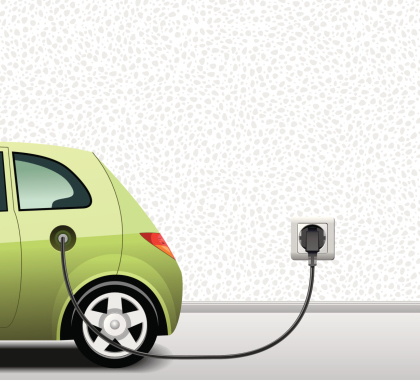Gov. Andrew Cuomo is giving building owners in New York State who install electric vehicle (EV) charging stations subsidies covering up to the 80 percent of the cost.
Under Cuomo’s Charge Ready NY (CRNY) initiative announced in September, the state is allocating $5 million for grants to owners of multifamily apartment buildings, office buildings, and public locations such as malls, parks, retail locations, and theaters to install EV charging stations that meet the government’s standards.
CRNY provides a $4,000 rebate per charging port to install charging stations as long as they provide enough electric power for up to 25 miles of travel for each hour a car is charged.
The rebates can be combined with New York State’s 50 percent tax credit for installing charging stations. Between the two programs, a commercial building owner with a state income tax liability could install charging stations at no net cost except for the parking spaces dedicated to charging EVs.
Multiple Green Energy Initiatives
With a goal of reducing New York’s greenhouse gas emissions by 40 percent by 2030, Cuomo has pushed a series of policies and regulations under his Reforming the Energy Vision plan. As part of that effort, Cuomo has launched a series of initiatives aimed at increasing the number of electric vehicles purchased and driven in New York.
In 2013, Cuomo launched the Charge NY initiative, with the goal of putting 30,000 to 40,000 EVs on the road by the end of 2018. Under this plan, the state offers a $2,000 rebate to car buyers for each new EV they purchase. So far, some 9,000 New York residents have received rebates totaling more than $12 million.
In May 2018, Cuomo announced the EVolve NY initiative, under which the New York Power Authority, the monopoly electric power utility owned by New York State, would spend more than $250 million through 2025 to increase tbe number of electric vehicle fast charging stations along major transportation corridors and in New York City airports. Today, there are approximately 2,000 charging stations scattered across the state. EVolve NY set a goal of increasing the number of charging stations to 10,000 by 2021.
With CRNY, Cuomo is committing an additional $5 million dollars to subsidize charging locations across the state.
Subsidies for the Wealthy
Subsidies for EVs benefit higher-income households at the expense of lower-income people who can’t afford the pricey vehicles, says Nicolas Loris, the Herbert and Joyce Morgan Fellow in Energy and Environmental Policy at The Heritage Foundation and a policy advisor to The Heartland Institute, which publishes Environment & Climate News.
Citing data from the Pacific Research Institute (PRI), Loris said, “PRI found in 2014, 79 percent of electric vehicle tax credits went to households making over $100,000, while 99 percent of them went to households making more than $50,000. Subsidies for electric vehicles accrue to the benefit of the wealthiest families and are a burden on average- and lower-income families who can’t afford the vehicles and don’t receive the tax benefits.”
Robert Bryce, a senior fellow at the Manhattan Institute, agrees electric vehicle subsidies are a handout to the rich.
“Cuomo’s subsidy plan for EV charging stations provides yet another example of how ordinary citizens are being forced to pay for expensive energy projects that primarily benefit the wealthy,” Bryce said. “A recent survey found the average buyer of an electric Ford Focus has an annual household income of $199,000.
“By comparison, purchasers of the Ford Focus with an internal combustion engine had average household incomes of about $77,000,” said Bryce. “It’s unfair for ordinary taxpayers to have to pay to help refuel cars belonging to the rich.”
Ambiguous Environmental Benefit
Purchasing an EV instead of a vehicle with an internal combustion engine does not necessarily produce a net environmental gain, says Baruch Feigenbaum, assistant director of transportation policy at the Reason Foundation.
“Electric vehicles are not always the most environmentally friendly,” said Feigenbaum. “In some states, due to the fuel used to produce electric power, hybrid vehicles produce lower emissions than electric vehicles.
“Additionally, the batteries used to power electric vehicles use lithium, which is very resource- and energy-intensive to mine,” Feigenbaum said.
Joe Barnett ([email protected]) writes from Arlington, Texas.





